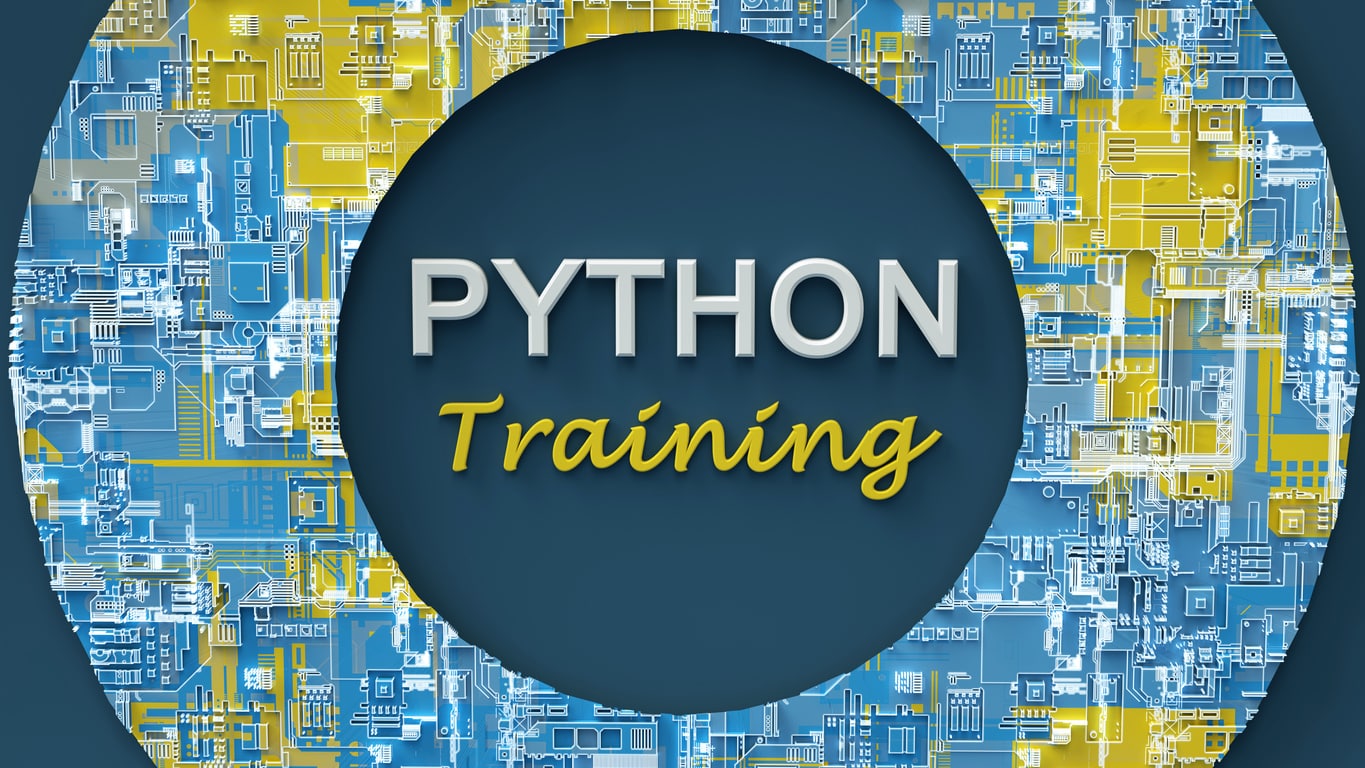- Technical Director
- Who is a Technical Director?
- Technical Director Job Description
- Roles and Responsibilities
- Technical Director Salary Trends
- Skills Required to be a Technical Director
- A Day in the Life of a Technical Director
- How to Become a Technical Director?
- What are The Advantages of a Technical Director Course?
- Frequently Asked Questions
- Conclusion
Technical Director
Technology has been a key driver of economic growth globally, and data shows that it continues to go strong. Tech vendors, channel firms, and distributors are witnessing a surge in business with an expectation of a further increase in tech budgets. The growth has an extended effect on the job market. While there’s an increase in demand across the entire spectrum, senior professionals like technical directors are much sought after for their knowledge and expertise.
Who is a Technical Director?
Technical directors are senior professionals who have a very high level of technical skills. While technical directors can be in any industry, here we will focus on the technology industry. Technical directors lead a department or the entire company in all matters relating to technology.
To become a technical director one must be responsible for – standardization of technology stack, selection, and acquisition of technical assets, management of technical operations, troubleshooting technical issues, managing the process of product creation and delivery. They may work with heads of different teams or departments to understand and assess the technical risks and opportunities in various projects.
Technical Director Job Description
Their job description varies from company to company, but the one mentioned below gives an idea of how it may look like:
We are seeking a technical director who works as a strategic planner, implementation leader, and change agent. We require a highly experienced professional with a stellar record in leading complex global environments. The person must display outstanding organizational and communication skills. We seek someone who can excel at:
- Establishing and leading a world-class technical division focused on developing software components that are critical for the functioning of systems across the company
- Working across the company’s businesses to collaborate with senior technical leaders and team members
- Partnering with technical teams across the company to create an optimum environment for cloud-native services
- Promoting innovation and technical excellence across the company by advocating modern engineering practices, adopting open source, encouraging a culture of collaboration and efficiency
- Working on complex systems by creating, managing, and leading multiple technical teams that are focused on distinct products
- Implementing agile practices to transform the software delivery process
- Working on Cloud platforms and associated Developer Toolchains and DevOps models
- Partnering with strategic vendors to identify and implement the necessary infrastructure
Roles and Responsibilities
The responsibilities of technical directors are focused on researching and recommending emerging technologies to enhance the productivity and profitability of the company. They are also involved in the technical implementation. They must be able to lead and manage technical teams. They are required to be collaborators who can work with cross-functional teams to coordinate the technical aspect of various projects. Additionally, they must proactively work on improvements to existing tools and pipelines. They may also be responsible for setting and driving strategic technology roadmap.
They also play an important role in driving the profits of the company. They are involved in the assessment and recommendation of technical aspects of prospective projects. When there is an opportunity, they are required to work on technical proposals and pitches. After a project is acquired, they are involved in the implementation of technical standards that improves the quality of the final product. They may manage the technical risks of a product even after delivery to the client.
Technical Director Salary Trends
The national average technical director salary in India is about ₹32 lac per annum. The average technical director salary in the US is $111,672. Those early in their careers as technical directors earn about $96,856 per annum. This figure can go beyond $144,266 per annum for more experienced professionals in the US.
Salary based on Company
Each company has its own compensation package based on several factors. Some of the companies and the technical director salary they offer are mentioned here:
- KPMG offers an average salary of about ₹46 lac/year for a professional with 10 to 22 years of experience
- AECOM offers an average salary of about ₹48 lac/year for professionals with 19-31 years of experience
- Mindtree offers an average salary of about ₹32 lac/year for professionals with 15-21 years of experience
- Oracle offers an average salary of about ₹26 lac/year for professionals with 13-22 years of experience
- Comviva Technology offers an average salary of about ₹32 lac/year for professionals with 15-20 years of experience
Salary based on Experience
The salary is usually about ₹7 lac per annum for those starting new into the role. Those with about 6-7 years of experience can expect an average salary of about ₹13 lac per annum. Technical director salary of about ₹22 lac per annum is prevalent for professionals with over 10 years of experience. It goes further up for more experienced professionals.
Salary based on Skills
Salaries in almost every sector are affected by the demand and supply gap in the skills required by companies. The same applies to the technical director’s salary. Technical skills related to DevOps, cloud computing, artificial intelligence, data science, machine learning, blockchain, big data, internet of things (IoT) are more in demand as new products, and start-ups are vying for attention. Professionals with expertise in these areas are more likely to get higher salaries.
Along with technical skills, which are critical to the role, the management skills of these professionals are also highly valued. Technical directors with expertise in managing complex global environments are picked up by multinational companies that have vast networks.
Skills Required to be a Technical Director
As mentioned above, this is a senior role with a highly demanding skillset. The professionals in this role must be equally good in technical and management skills. Some of the skills that technical directors must have are:
Technical Skills
These skills will vary as per specific roles. However, professionals may be required to have expertise in cloud technologies, modern human-computer interfaces, big data technologies, data architecture and modeling, lifecycle management of systems, mobile technologies. A good understanding of agile methodologies, DevOps models, front-end and back-end development is also important to the role.
They must have experience in designing complex systems and organizing the deployment of cloud solutions. Knowledge of messaging tools like IBM MQ or RabbitMQ is helpful.
In some roles, they may be required to have experience with programming languages like Java or C# and frameworks like .NET framework, Apache web server, SAP NetWeaver Enterprise Portal, and so on. They must know about databases.
A skill that technical directors can’t live without is the ability to research and learn about new technologies. They must update themselves with trends in various domains like SaaS, PaaS, IaaS.
Analytical skills
As leaders, technical directors must have the ability to break down a problem into parts. This will allow them to understand the relationship and dependencies between the parts. Professionals with this skill can plan well and delegate work to effectively manage projects.
Analytical skills come in handy in creating pitches and proposals for new projects. Without proper analysis and assessment of the work involved, even budgeting and forecasting are not possible.
Decision making
Analytical skills must be accompanied by decision-making prowess for effective use of the analysis. The decision-making aptitude is very critical as the work involves choosing one alternative over another by considering the trade-offs.
These leaders must be able to apply their problem-solving skills when considering different viewpoints to arrive at a careful decision. When they encounter unprecedented situations, their experience and intuition support their analysis and decision-making.
Collaboration skills
These leaders must collaborate with cross-functional leaders and teams to enable productive solutions. Collaborating within organizations that have a matrix structure across borders is a complex task needing an experienced leader. Seamless collaboration is almost always required for the success of valuable projects.
As a collaborator, it’s helpful to be diplomatic and patient. Multicultural organisations benefit from leaders who can appreciate the knowledge, experience, and style of other stakeholders.
Communication Skills
Almost every successful project depends on clear communication of knowledge and thoughts to other stakeholders. Technical directors must work with cross-functional teams and other leaders in and outside an organization. There’s barely any room for misunderstanding when there are so many variables at play.
A good communicator knows that listening to others is critical. They must be able to listen to and appreciate the opinion of others. Strong command of communication skills is essential, especially when the stakes are high.
Training and mentoring
Technical directors have rich experience, which must be shared for the growth of team members and the organization. These leaders must look at ways to mentor and encourage professionals with positive feedback. This improves trust and commitment between team members and leaders.
Identifying and channelizing the goals and visions of others in the team paves the way for further organizational and personal growth.
A Day in the Life of a Technical Director
No two days are alike for the dynamic role of a technical director. However, it usually starts with checking emails and messaging tools for any issues or alerts. It’s important to immediately respond to or acknowledge important messages.
Next, they must catch up with their team and see if anything needs attention, and manage workflows. Then during the day, they meet with cross-functional leaders and other stakeholders to design workflows and processes. They must participate in planning sessions with team heads to interpret current and future projects roadmaps.
Another important area to focus on during the day is to extend their technical and functional expertise to users and technical teams. They may also have to include local or international travel for this.
Recruitment is an important element in a leader’s routine. They may have to allocate some time for interviews or onboarding processes.
Apart from the critical issues, they must find time to research and keep themselves current with the latest in technology and meet current and prospective vendors.
Their job is not complete without some knowledge transfer, mentoring, and delegating their team members. If the members are in a distributed setting placed in different time zones, then they need to allocate time accordingly.
There’s hardly a dull moment during a workday of a technical director. Sometimes, the demand for the work may extend beyond typical work timings.
How to Become a Technical Director?
Technology professionals reach the level of the technical director through various paths which are not always linear. Some of the career requirements include the following:
Education
A bachelor’s degree in information technology, computer science, or a related field is a basic requirement. Considering certain role requirements, a master’s degree may also be essential. To understand the requirements better, it’s best to look at the credentials of existing technical directors in the industry you are keen on.
Certifications
Certifications serve the dual purpose of updating the professionals in the relevant domain as well as highlighting the learner’s aptitude to acquire new information. Both of which are equally important to the role. Several technical certifications in various cutting-edge technologies are available.
Work Experience
Technical directors are senior-level professionals with several years of work experience. You must start with an entry-level IT job and then work your way through the application of knowledge and skills.
After some years, you must apply for a management position in your domain. This is important as technical directors are leaders with technical and management expertise. Through recognition and promotion, you land the role of technical director.
What are The Advantages of a Technical Director Course?
There is no single course for technical directors, but several individual courses add value to the skills of technology professionals. For example, advanced certifications in software engineering for cloud and blockchain will get you skilled in the latest applications of cloud computing and blockchain technologies. Similarly, there are advanced certifications in IT management, data science, cyber security, and fullstack development that equip you with the skills in relevant areas.
IT Management Courses
Maintaining system integrity and compliance are critical in the role. An advanced course in IT management or an MBA or MS in IT usually covers these aspects. They train professionals to understand system auditing, control, and maintenance.
Project Management Professional (PMP)
The course courses various aspects of managing projects. It includes decision-making, tools, techniques, and methodologies of project management. These are helpful in the technical directors’ role as they manage or are part of various projects.
Agile Scrum Certification
Agile and Scrum methodologies have transformed project management. The courses train professionals in tools and techniques that make them more agile. They can respond faster and more accurately to risks. These have been established in various industries with proven success.
These courses give you a career boost if you select them wisely and as per your career goals.
Frequently Asked Questions
Is the Technical Director a good position?
The role is in high demand in the technology industry. The growth in technology and expansion of companies have led to more demand for professionals who can manage the infrastructure. Global companies with local and distributed technical teams need technical directors who can manage such teams.
Is the Technical Director a well-paying role?
The average salary of a technical director is ₹32 lac per year. With more experience, technical directors can even earn in the range of 48 lac per year. The figures confirm that it is a well-paying job.
Which industries do technical directors work in?
They usually work at companies in the IT industry, and however, with the implementation of extensive technology infrastructure in almost every industry, they may work in any industry.
Is it possible to directly start work as a technical director?
You need several years of proven experience in a relevant technology space before you can start work as a technical director.
Can a technical director become a CTO?
Technical directors usually have the skills to become CTOs. Technical Directors are some of the best candidates who get promoted to the role of CTOs, as they bring together disparate elements to create efficient solutions in the technology space.
Are technical directors required to write code?
Technical directors are usually involved in managing technical infrastructure and teams. However, some roles may need them to know coding to supervise a solution or troubleshoot.
Do Technical Directors manage teams?
Technical Directors manage teams and also collaborate with cross-functional teams. These days, they manage local and distributed teams.
What skill sets are required to become a Technical Director?
A technical director must demonstrate expert-level skills in technology management, team management, project management. Strength in communication skills and engineering best practices is also essential.
Who is the role of technical director most suitable to?
The role is very demanding in nature. Therefore it’s suitable for professionals who like a challenging work environment.
Conclusion
The role of a technical director is at the forefront of cutting-edge technology. As leaders in technology management, they are considered immensely valuable by companies globally. If you are considering it as your career goal, then you must plan accordingly, taking your current stage into account.
The journey to the role is worth every bit as you deal with existing and evolving technology. It’s a growth-oriented role with scope for further development. The time is right to start preparing for the same and be ready to be picked by a leading organization.






